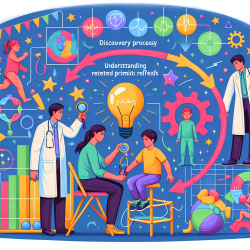Introduction
In today's fast-paced educational environment, burnout is a pervasive issue, especially among those advocating for special education. The relentless drive to provide the best for children with unique needs can be exhausting. However, there is a promising solution that can alleviate some of this pressure while enhancing school culture: online therapy services.
The Burnout Challenge
Special education advocacy groups often face overwhelming demands. The need to constantly push for resources, support, and recognition for children with special needs can lead to burnout. This emotional and physical exhaustion not only affects advocates but also the quality of support provided to children.
The Role of School Culture
School culture plays a pivotal role in the success of special education programs. A supportive and inclusive culture fosters a positive learning environment where children with special needs can thrive. However, creating such a culture requires commitment and resources, which can be challenging to sustain without innovative solutions.
Data-Driven Solutions: Online Therapy
Online therapy services, like those offered by TinyEYE, present a data-driven approach to enhancing school culture and supporting special education. Here are some of the benefits:
- Accessibility: Online therapy breaks geographical barriers, ensuring that children in remote or underserved areas receive the support they need.
- Flexibility: Therapy sessions can be scheduled at convenient times, reducing stress for both children and educators.
- Resource Optimization: Schools can allocate resources more effectively, ensuring that all students receive the attention they deserve.
- Data Collection and Analysis: Online platforms facilitate the collection and analysis of data, enabling schools to track progress and make informed decisions.
Creating a Positive Impact
By integrating online therapy into the educational framework, schools can foster a more inclusive and supportive culture. This approach not only benefits children with special needs but also reduces the burden on educators and advocates, mitigating burnout.
For special education advocacy groups, promoting the adoption of online therapy services is a tangible step towards creating sustainable change. The data supports the efficacy of these services in improving outcomes for children and enhancing school culture.
Conclusion
The path to a supportive and thriving school culture is paved with innovative solutions like online therapy. By embracing these services, advocacy groups can take a significant step towards alleviating burnout and ensuring that children with special needs receive the education and support they deserve. It's time to take the next step and explore how online therapy can transform the educational landscape for the better.










